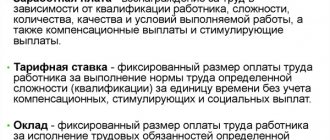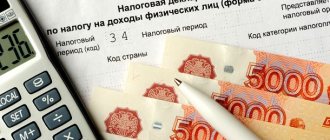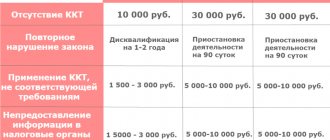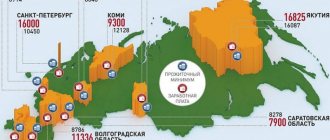- Stanislav Milonin
- 1 975
For 2020, the Government of the Russian Federation has implemented several projects providing for changes in taxes for individuals and legal entities.
The main goal pursued by the initiators of the reforms is to improve the living standards of citizens within two years. According to the plans of the reformers, updates to the tax system should show their effectiveness already in the current 2020. Some changes to current taxes have not yet come into force, and there are a number of unapproved bills under consideration. In view of the specifics of the Russian tax system, the skepticism of the majority of citizens studying changes in legislation is more than understandable. People’s doubts have more than good grounds, because the state does not often cancel, reduce the amount or make other changes to taxes that bring the main income to the budget. In modern realities, the share of tax profits is about 85% of all budget revenues. It is these funds that are used to implement social programs, government investments and infrastructure development. Experts believe that changes from 2020 will lead to an increase in the cost of basic goods, that is, they will have a negative impact not only on companies and businesses, but will also affect ordinary citizens. Officials, on the contrary, assure that all future innovations have gone through a long period of analysis and all potential negativity is leveled out by counter programs to increase wages and social benefits.
New tax for self-employed
Since January 2020, an experiment has been launched in several regions to remove self-employed individuals from the shadow sector. The effectiveness of the new scheme of interaction with the self-employed will be tested using the example of Moscow, the Moscow and Kaluga regions, and Tatarstan. It is planned to introduce a range of tax rates:
- 4% when receiving income from individuals;
- 6% if the profit is received from the provision of services to legal entities and individual entrepreneurs.
Self-employed will be considered citizens who are engaged in entrepreneurial activities without using hired labor in their work. The tax base will be professional income - revenue received from the sale of commercial products, provision of services and performance of work; income cannot be reduced by expenses incurred. The maximum income for the self-employed is 2.4 million rubles. in year. All data on incoming money in cash or through electronic means of payment must be recorded in a special mobile application. Tax calculations will be carried out by Federal Tax Service employees. Enforcement measures against citizens who evade paying this tax are under discussion.
For food, clothes, shoes and air tickets
From January 2020, one of the main taxes in Russia - VAT - will increase.
Value added tax will increase from 18% to 20%. This will allow the budget to receive an additional 600 billion rubles. in year. In 2020, the state will earn 678 billion rubles from the VAT increase, and in 2021 - 728 billion rubles. Money is needed to implement Vladimir Putin’s decrees, which are aimed at increasing funding for infrastructure, demographic policy, health care and education. But at the same time, an increase in VAT will also lead to a jump in prices for goods. First of all, food, alcohol, tobacco products, shoes and clothing, household appliances, air tickets, medicines and much more will become more expensive.
Main news on the topic
The state shifts the solution of problems to entrepreneurs. Four reforms that will ruin business
Excise tax rates will change in the new year
For 2020, Law No. 301-FZ dated August 3, 2018 introduces amendments to the excise tax rates. Thus, excise taxes on the entire line of tobacco products will increase by an average of 10%. For fuel, the increase in rates will be from 39 to 50% (despite the fact that in 2020 the increase in excise taxes was one of the reasons for the rapid increase in fuel prices, which required a “freeze” of rates):
- For class 5 gasoline, the tariff will increase from 8,213 to 12,314 rubles. (+50%);
- for diesel fuel an increase from 5665 rubles. up to 8541 rub. (+50%);
- for middle distillates it is planned to increase from 6665 to 9241 rubles. (almost 39%).
It is already possible to predict an increase in prices for cars with a capacity of 90 horsepower or more - excise taxes on them will increase by 4% in 2020. Similar changes will affect motorcycle manufacturers – also plus 4%.
What changes are planned for 2020?
When considering this topic, it should be divided into two parts, indicating those fiscal measures that have already been adopted and put into operation, as well as those that are still being discussed or require improvement. So, it's time to find out what awaits taxpayers in the new year 2020.
Changes that came into force on January 1
- NAP is being introduced - a new principle of taxation for individuals conducting commercial activities and individual entrepreneurs. The system will operate in experimental mode on the territory of several federal subjects including Moscow, Moscow Region, the Republic of Tatarstan and the Kaluga Region, the planned duration of the experimental mode is until 2028. Citizens whose annual income does not exceed 2.4 million per year can switch to the system; the rate will be from 4 to 6%. These changes provide for an incentive deduction in the amount of 10,000 rubles; the procedure for calculating and accruing the deduction amount will be carried out by the Federal Tax Service independently;
- abolition of reduced tariffs for insurance premiums - for the simplified tax system, UTII (for pharmacies) and PSN, basic tariffs are introduced, valid until the establishment of reduced tariffs for the period from 2020 to 2020. There are no plans to extend preferential terms for 2020;
- new deflator coefficients have been established - changes in the tax system affect the calculated coefficients for the simplified tax system and PSN - 1.518, UTII - 1.915 and personal income tax - 1.729. The innovations also affect the trade tax, the coefficient for the year (indexed) is 1.317;
- changes were made to the personal income tax form - innovations affected forms 3-NDFL and 2-NDFL;
- Personal income tax on the sale of property has been abolished - if property (including those used for commercial purposes) has been owned for 3 to 5 years, tax for individuals in 2020 is not required to be paid. Current changes apply to residents and non-residents;
- the basic and calculated VAT rates are increased - in the first case, the increase was 2% (from 18 to 20%) in the second - the rate was increased from 15.25 to 16.67%;
- the amount of the fee for the compulsory pension fund has been reduced - the previously existing rate of 26% was reduced by 4% and fixed at 22% with the mark “indefinitely”. Also, innovations in this area provide for the payment of an additional 10% on the amount exceeding the maximum established for calculations at the base rate.
A number of requirements for the payment of contributions by industry have also been revised; the law on SNT and ONT has been in force since January 1, 2020; the minimum wage and the amount of some social payments have been changed, including for programs to improve the demographic situation in the country.
Tax change table
| Type of fiscal liability | The essence of the changes |
| Personal income tax | New reporting form 1 certificate 2-NDFL. |
| Income tax | Subjects of the Russian Federation are deprived of the right to reduce the rate on regional obligations in the general manner. Existing benefits will remain in effect, but no later than 2023. In relation to certain categories of taxpayers, the right will be retained. |
| Property tax | Movable property is excluded from taxation. |
| VAT | Increase in rate from 18 to 20%. |
| Insurance premiums | New limits:
Some benefits of reduced tariffs have been abolished. The rate on OPS is recognized as unlimited. |
| State duty | Institutions will be able to avoid paying state fees for registering changes made to constituent documents. |
| Transport tax | Owners of heavy goods vehicles will be required to pay advance toll payments. |
What's expected next:
- it is planned to increase the rate of contribution to the social insurance fund to 30.8% from the current value of 30%. Decision-making is complicated by the choice of innovation implementation option - indefinitely or for a certain period. From January 1, 2020, the indexation procedure for certain types of contributions to the OSS fund was approved;
- The procedure for making changes to the tax for individuals is being discussed. Government departments are putting forward various proposals: the Ministry of Finance is confident in the need to increase the rate to 15%, the Ministry of Economic Development is in solidarity with the Ministry of Finance, representatives of the Center for Social Development insist on a 17% personal income tax rate. There are also proposals to introduce a progressive scale, providing for a variable rate depending on income level. The Prime Minister spoke out against any changes to taxes for individuals in 2020;
- increasing excise taxes on tobacco and alcohol – the timing of increasing the “tobacco” tax by 10% from current standards is being discussed. Regarding alcoholic products, officials propose canceling benefits for Russian producers by raising the tax per liter of wine to 36 rubles, followed by annual indexation by 1 ruble. Currently, the excise tax is 18 rubles per liter of products;
- the possibility of introducing changes in taxes on automobile equipment is being considered, with the approval of the amount of collection depending on engine power;
- it is planned to reduce the excise tax on gasoline and diesel fuel for the domestic market and increase duties on bitumen and fuel oil. With these measures, the government plans to curb the rise in fuel prices in 2020 and will not lose one of the main sources of budget income (the price of bitumen and fuel oil will increase by 1.5 times);
- changes are planned for organizations, in particular the abolition of export duties on oil and taxes on movable property.
Changes to special modes
From 2020, business entities that have switched to the simplified tax system or UTII will not be able to apply reduced rates of insurance premiums on the income of hired personnel. Previously, pension contributions were charged at the rate of 20%, and for other types of compulsory insurance a zero rate was established (with the exception of contributions for “injuries”). In 2019, simplifiers and imputators will calculate contributions according to general rules:
- for pension insurance at a rate of 22% (10% if the tax base limit is exceeded);
- for social insurance – 2.9%;
- for compulsory medical insurance – 5.1%.
Fiscal pressure on persons using special regimes will also increase due to the updating of the values of deflator coefficients. This factor will not affect the simplified ones, but the imputed ones will have to pay more to the budget. For business entities on UTII, the K1 coefficient will increase to the level of 1.915 (in 2020 the value is 1.868). This will increase the tax base by 2.5%.
Another obstacle in the work of imputators is the introduction of a ban on trade in labeled products from 2020. In addition, the list of products subject to mandatory labeling has expanded significantly since the new year.
Unified agricultural tax and VAT
Previously, agricultural enterprises did not pay VAT. From 2020, individual entrepreneurs and organizations on the Unified Agricultural Tax will pay VAT. Paying VAT will allow it to be deducted, which was not available before 2020. But the law also provides for exceptions. If you work for the Unified Agricultural Tax and your revenue in 2018 is less than 100 million rubles, then you do not have to pay VAT. But the threshold value will be reduced by 10 million rubles annually. For example, revenue for 2020 should be no more than 90 million, for 2020 - no more than 80 million, for 2021 - no more than 70 million, and so on.
What's new for employers
Employers will have to pay larger contributions for compulsory types of insurance. This is due to the increase from 2020 in the size of the maximum limits for calculating contributions in case of temporary disability and for pension provision:
- for social insurance the limit will increase to 865,000 rubles. (in 2020 – 815,000 rubles);
- for pension insurance, the maximum base will increase to RUB 1,150,000. (in 2020 – RUB 1,021,000).
Another negative factor is the increase in the retirement age. In 2020, the retirement age will be increased for six months, and during these six months the employer will pay not only income tax on the earnings of an employee about to retire, but also insurance premiums.
A positive moment for citizens of the Russian Federation is the increase in the minimum wage since January (albeit insignificant - to 11,280 rubles from 11,163 rubles). For employers, this fact means an increase in labor costs.
Possible innovations from 2020
A number of innovations are still at the draft stage and it is impossible to say unequivocally that they will come into force on January 1, 2020. But it’s still worth mentioning possible changes:
Exemption of individual entrepreneurs from filing a declaration under the simplified tax system. The President's message to the Federal Assembly speaks of the abolition of the simplified tax system declaration for entrepreneurs. The goal is to make it easier for newbie entrepreneurs to do business. It is most likely that the change will affect individual entrepreneurs using the simplified “Income” system who use online cash registers. The tax authorities already see all the receipts, so the declaration simply duplicates the information provided by the online cash register.
Tax on professional income. A draft new tax for self-employed individuals is also under consideration. They plan to introduce this tax as part of an experiment in Moscow, the Moscow and Kaluga regions and the Republic of Tatarstan.
Financial statements. The bill plans to oblige companies to submit accounting reports electronically only to the Federal Tax Service. Rosstat will no longer have to send a second copy of the report.
To keep abreast of changes throughout the year, easily keep records, pay salaries, pay taxes, contributions and report - use the cloud service Kontur.Accounting. The service is updated in a timely manner to comply with current legislation, protecting you from sanctions from tax authorities. The first month of use of the service is free for all new users.
Environmental fee
For a number of products, the cost of products includes the amount of environmental fees. The list of such commodity items was fixed by the Government in Order No. 2970-r dated December 28, 2017. In 2018, the levy applies to 36 groups of goods; starting next year, it will be introduced for 54 categories. For existing types of products, an increase in collection rates is planned, for example:
- by 11.4% for textile products, clothing, wooden containers, petroleum products, rubber products (including tires), sheet glass, computer and household appliances, photographic equipment, tools, lighting;
- by 21.4% for batteries;
- by 28.5% for stationery and paper products, household goods, sanitary products, toiletries;
- 53.9% growth is based on hollow glass;
- Plastic products will be much more expensive for manufacturers - the fee will increase for packaging materials made from these raw materials by 171.4%, and for construction products by 121.9%;
- metal containers and containers made from ferrous metals are breaking records – an increase of 725.4%.
The rules for preferential payment of state duty will change
When paying the state fee online on the State Services portal, it was possible to reduce the payment amount by 30%. Such preferential conditions were introduced on a temporary basis for a number of services - for example, for issuing a foreign passport, driver's license or obtaining license plates for a vehicle. The discount was valid from January 2020 to December 2020, and will not apply from 2020. In addition, the amount of state duty itself will increase in some cases. The state fee for issuing a new generation international passport will increase from 3,500 to 5,000 rubles, and for citizens under 14 years of age - from 1,500 to 2,500 rubles.
For state registration of vehicles and other registration actions, including when issuing a state registration certificate to replace a lost one, the state duty will be 1,500 rubles (now 800 rubles), and for issuing a national driver’s license - 3,000 rubles (now 2,000 rubles). The corresponding Federal Law No. 180-FZ dated July 3, 2018 has already been adopted. New types of state duties will be introduced, in particular for excise stamps. The amount of state duty for registering self-propelled vehicles will change. For state registration (renewal of registration) of an attraction with a high degree of potential biomechanical risk, the entrepreneur will have to pay 13,000 rubles, with an average degree of risk - 7,000 rubles, with a low degree of risk - 3,500 rubles.
Property tax for individuals – abolition of the reduction coefficient
When calculating the property tax of citizens, depending on the year when the region first began to calculate the cadastral value, a benefit is applied - a reduction factor (clause 8 of Article 408 of the Tax Code of the Russian Federation). The coefficient of the first year is 0.2, the second – 0.4, the third – 0.6. But the benefit for the fourth year (coefficient 0.8) was canceled by Law No. 334-FZ of 08/03/2018. Thus, property tax for individuals is increasing already this year when calculating the tax for 2020.
We considered only important changes relating to increases in taxes and fees for citizens, individual entrepreneurs and legal entities. We must remember that in the middle of the year, utility tariffs usually increase, the cost of travel on public transport increases annually, and, naturally, the cost of goods and services increases.
Introduction of income tax benefits for state institutions and cultural institutions
Tax rates. Rates of 17% and 3% will be extended for 2021-2024. The basic income tax rate is 20%, of which 17% remains in the region where the tax is collected. 3% goes to the federal budget.
Composition of expenses. From 2020, it will be possible to take into account the costs of travel packages around Russia for employees. The maximum amount that can be written off as expenses is 50 thousand rubles per year for the holidays of each employee and relative. For workers in the Far North, the new limit of 50 thousand rubles will not apply to expenses that are currently taken into account when calculating tax.
Expenses can be written off only under an agreement with a tour operator or travel agent concluded by the organization for the employee or his relatives (spouse, parents and children under 18 years of age or 24 years of age if they are full-time university students). Employers will be able to take into account in labor costs the cost of travel, accommodation, meals, sanatorium and resort services, excursions (subparagraph “b”, paragraph 1 of Art.
When paying for tour packages, the employer is required to withhold personal income tax. In this case, income is equal to the price of services under the contract. The date of receipt of income is the day when the voucher was paid for.
READ ON THE TOPIC:
The law has been signed: new calculation of property taxes from 2020. Who got the benefits?
Among the many amendments that are planned to be made to the Tax Code, some are of great importance for state and municipal institutions, and they relate to income taxation.
In particular, most of the income of state-owned institutions can be exempted from income tax - it is planned to include funds received by state-owned institutions from income-generating activities, which by force of law are subject to transfer to the budget, as income not taken into account when determining the tax base.
Today, the corresponding norm of the Tax Code of the Russian Federation applies only to income in the form of funds received by state institutions from the provision of services and performance of work. The amendments will allow state institutions not to tax other income from income-generating activities, for example:
- amounts of compensation for losses or damages;
- funds received from the sale of scrap metal;
- amounts of insurance compensation received from the insurance company under MTPL, CASCO, etc.
In addition, it is planned to establish a zero income tax rate on the income of regional or municipal museums, theaters and libraries. Institutions will be able to apply a preferential rate provided that income from their activities constitutes at least 90% of all income taken into account when determining the tax base.
But the use of a 0% income tax rate by organizations engaged in medical and/or educational activities, which was provided only before January 1, 2020, will now be possible after this date - on an ongoing basis.










